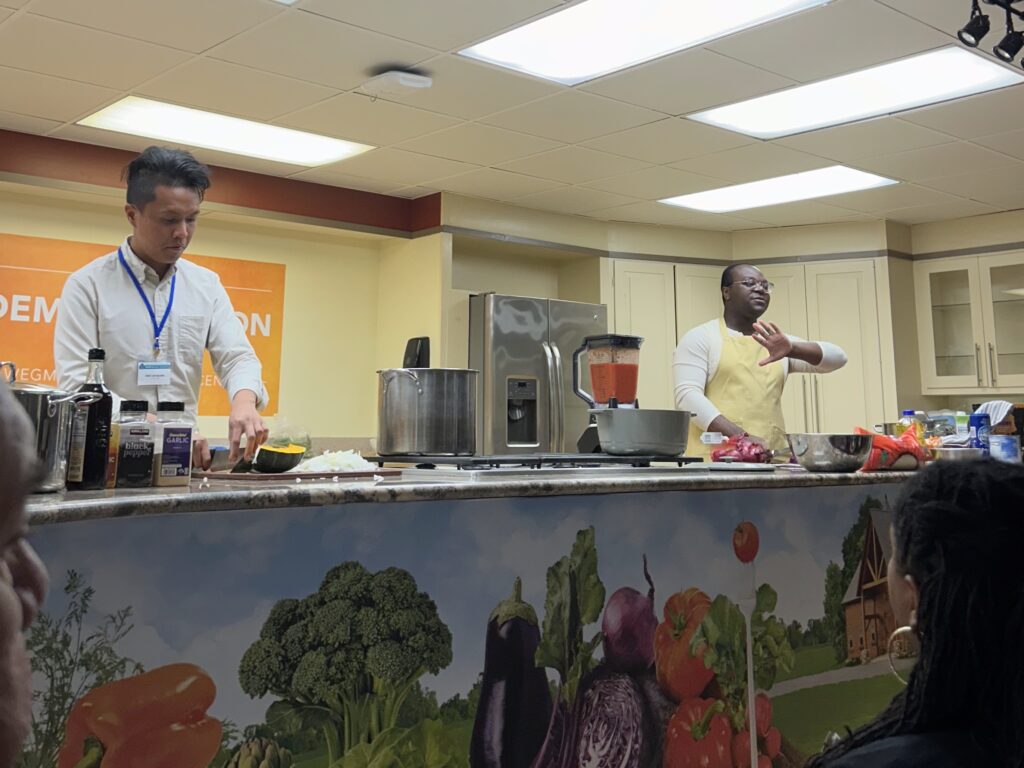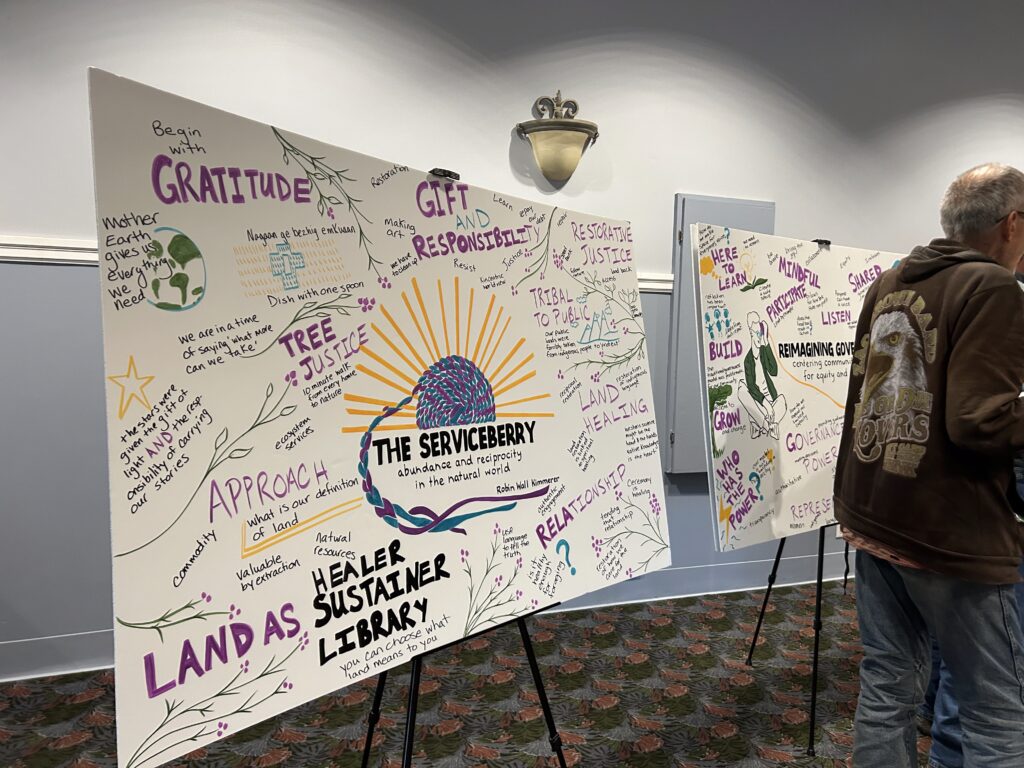Amid local struggles and federal SNAP cuts, Syracuse advocates gathered on an empty fairgrounds to talk food justice
For a short stint each summer, the New York State fairgrounds are the picture of abundance. Fairgoers float between food vendors, artists sculpt bucolic farm scenes into massive mounds of butter, and state-subsidized $1 baked potatoes call to mind a bygone era. But come autumn, the expansive site in Syracuse, New York, is a quieter scene.
This past weekend, however, there were flickers of life in the empty lots. Between a vacant eatery and the bones of a once-bustling dairy barn, activists and residents convened at communal tables to talk about fair food.
Not the kind you find deep-fried on a stick– but food that is equitable, fair, and accessible for all.

Grassroots gathering
The Syracuse-Onondaga Food System Alliance (SOFSA) hosted its third annual Food Justice Gathering in the fairgrounds’ Art & Home Center on Saturday. The pay-as-you-wish event focused on continuing to create a more just food system in a city still struggling with access.
“All people should have the privilege of having a meal,” said Syeisha Byrd, Commissioner of Parks, Recreation, and Youth Programs for the City of Syracuse.
“I envision a city where you can walk down the street and pick an apple. I don’t understand, and I still question– why isn’t that happening?”
Due to a history of redlining, corporate food system exclusion, and ongoing concentrated poverty, communities, including Syracuse’s Southside, are in what grassroots advocates call a state of “food apartheid”.
Through storytelling and conversations that centered community voices, the event aimed to address those disparities and seek solutions. This year’s theme was “Interwoven”, inspired by the work of botanist and author Robin Wall Kimmerer, who delivered the keynote address.
In Syracuse, where she teaches at SUNY ESF, and beyond, Kimmerer’s work focuses on land restoration. That can look like urban farming on abandoned lots, planting urban fruit trees, and giving land back to indigenous communities– all acts of social and ecological restoration. It’s what Kimmerer refers to as “doing dishes in Mother Earth’s kitchen”.
“But that’s where the fun happens, right? It’s after the feast when you’re in the kitchen, elbow deep in sudsy water, laughing and talking,” Kimmerer said. “This is an invitation for joyful, open, and appealing restoration.”
‘Doing the dishes’
Downstairs in the basement demo kitchen, journalist and home cook Stevie Ali set out dishes to cook Jollof Rice, a traditional West African dish. After Kimmerer’s address, gatherers spent the day cycling through rooms like his to cook, engage in community conversation, and exchange culture. Between jokes with the crowd and answers to questions about knife skills, Ali reflected on what food justice meant to him.
“An essential part of justice needs to be people feeling like they have agency in what they’re eating, why they’re eating it, and when,” Ali said. That right, often referred to as food sovereignty, can look like the ability to choose food that is local, sustainably grown, or culturally authentic. But communities can’t reach those markers, Ali stresses, without first addressing hunger.
“It also just means having enough food, which is a significant struggle– especially in this day and age in the United States of America.”
Food security in flux

Amid the ongoing government shutdown, SNAP benefits will shutter on November 1st. State and local governments, as well as food pantries and nonprofits, are scrambling to support the roughly 42 million Americans who will lose food assistance in the absence of the federal food stamp program.
“This event takes place on the first day of early voting,” SOFSA Director Maura Ackerman reminded. “That timing is no accident.”
SOFSA sent out a survey to local candidates seeking feedback on their food justice policies and priorities, and shared results at the event. Mayoral candidate Sharon Owens made rounds through the crowd.
The event was as much a community cookout as a call to action. Still dreaming of urban farms and streets lined with fruit trees, Byrd encouraged attendees to turn to their neighbors and share skills and solutions.
“Share what you know. Let them share what they know, and bring them along,” Byrd encouraged as attendees mingled over bins of apples and passed plates of Ali’s Jollof rice.
“Often, food gets them there, so if you feed them, they will come. You might have the solution for the problem we’ve been waiting to solve.”
